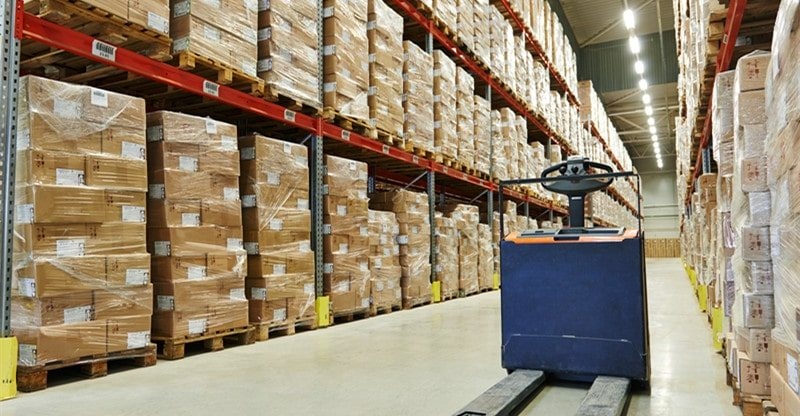Comments
- No comments found

Reselling has emerged as a lucrative avenue for individuals seeking to build profitable businesses with relatively low startup costs.
At the heart of many successful reselling ventures lies the strategic utilization of wholesale merchandise pallets.
These pallets, brimming with assorted products sourced directly from manufacturers or distributors, offer resellers an efficient and cost-effective means of acquiring inventory for their businesses in bulk, ensuring a steady and diverse inventory for their operations.
This article delves into the realm of building a profitable reselling business with wholesale merchandise pallets, emphasizing the critical role they play in maintaining a robust inventory for your business. It navigates through the intricacies of this business model, offering insights, strategies, and practical advice for aspiring and established resellers alike.
To establish a successful reselling business with wholesale merchandise pallets, it's essential to formulate a robust strategy that encompasses various key elements:
Researching Market Demand and Trends: Conduct thorough market research to identify high-demand products and emerging trends. Analyze consumer preferences, seasonal fluctuations, and competitive landscapes to inform your product selection and pricing strategies.
Setting Financial Goals and Budgeting: Define clear financial objectives and create a budget that accounts for inventory acquisition costs, operational expenses, and potential fluctuations in revenue. Establishing a sound financial framework ensures prudent decision-making and sustainable growth.
Choosing the Right Wholesale Merchandise Pallet Suppliers: Carefully evaluate potential suppliers based on factors such as product quality, reliability, pricing, and shipping policies. Establishing strong partnerships with reputable suppliers is crucial for securing high-quality inventory and maintaining consistent supply chains.
Establishing an Efficient Inventory Management System: Implement an organized inventory management system to track product inventory, sales, and profitability effectively. Utilize software solutions or spreadsheets to monitor stock levels, analyze sales data, and identify opportunities for optimization and replenishment.

In the dynamic realm of reselling, maximizing profit margins is paramount for sustainable growth and success. Several strategic approaches can help resellers optimize their profitability.
One crucial aspect is pricing strategy. Resellers must strike a balance between competitiveness and profitability, considering factors such as product demand, market trends, and perceived value.
Identifying high-demand products is another key strategy, by focusing on products with strong consumer demand and minimal competition, resellers can command higher prices and achieve faster inventory turnover. Market research and trend analysis play crucial roles in identifying these lucrative opportunities.
Negotiating favorable deals with suppliers can significantly impact profitability. By leveraging volume discounts, negotiating favorable payment terms, and cultivating strong relationships with suppliers, resellers can lower acquisition costs and increase profit margins.
To effectively promote products and drive sales in the competitive reselling landscape, resellers can employ a variety of marketing and sales tactics:
Creating Compelling Product Listings: Craft detailed and visually appealing product listings that highlight key features, benefits, and competitive advantages. Use high-quality images and descriptive language to engage potential buyers and differentiate your offerings.
Leveraging Social Media and Online Marketplaces: Utilize social media platforms such as Instagram, Facebook, and Twitter to showcase products, interact with customers, and drive traffic to your online store or marketplace listings. Additionally, leverage popular online marketplaces like Amazon, eBay, and Etsy to reach a broader audience and increase sales potential.
Implementing Effective Advertising Strategies: Invest in targeted advertising campaigns to increase visibility and attract potential customers. Utilize pay-per-click (PPC) advertising platforms such as Google Ads or social media advertising to reach specific demographics and maximize ROI.
Providing Exceptional Customer Service: Prioritize customer satisfaction by offering prompt and personalized assistance, addressing inquiries and concerns promptly, and maintaining open lines of communication. Positive customer experiences can lead to repeat purchases, positive reviews, and referrals, ultimately driving long-term business growth.
Despite its potential for profitability, the reselling business is not without its challenges and risks. Resellers must be prepared to navigate various obstacles and mitigate potential risks to ensure the long-term viability of their businesses.
One common challenge is dealing with product quality issues. Whether it's receiving damaged or defective merchandise or encountering counterfeit goods, resellers must have protocols in place to address quality concerns promptly and effectively.
Handling returns and customer complaints is another critical aspect of managing a reselling business. Resellers must be prepared to address customer inquiries and complaints promptly and professionally, striving to resolve issues to the customer's satisfaction while minimizing financial impact on the business.
Resellers must adapt to market fluctuations and seasonality, which can impact demand, pricing, and inventory management.
As resellers experience growth and success, scaling their businesses becomes a natural progression. Scaling involves expanding operations, increasing revenue streams, and reaching new markets to capitalize on opportunities for further growth and profitability.
Reinvesting profits for growth is a fundamental aspect of scaling a reselling business. Allocating resources strategically, such as investing in additional inventory, expanding marketing efforts, or upgrading infrastructure and technology, resellers can fuel continued expansion and success.
Expanding product offerings and diversifying inventory is another key strategy for scaling. Broadening their product range to include complementary or trending items, resellers can appeal to a wider audience and capture additional market share.
Moreover, as businesses grow, resellers may consider hiring employees or outsourcing certain tasks to streamline operations and increase efficiency. Whether it's hiring warehouse staff, customer service representatives, or outsourcing accounting and marketing functions, scaling often requires expanding the team to accommodate increased demand and workload.
In the realm of reselling, the utilization of wholesale merchandise pallets stands as a cornerstone for building profitable businesses. From understanding the composition of pallets to implementing strategic pricing, marketing, and scaling tactics, resellers have been equipped with the knowledge and tools needed to thrive in this competitive landscape.
Aspiring entrepreneurs are encouraged to embark on their reselling journey with confidence, armed with the insights and strategies shared in this article. With dedication, perseverance, and strategic planning, building a profitable reselling business with wholesale merchandise pallets is not only attainable but can pave the way for a rewarding and lucrative entrepreneurial endeavor.
Leave your comments
Post comment as a guest